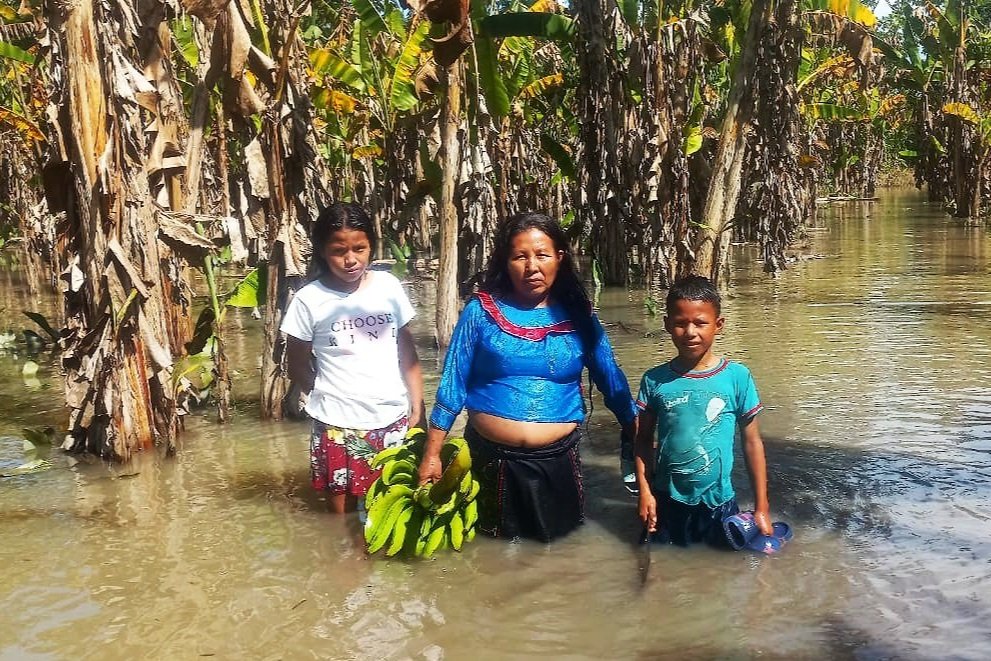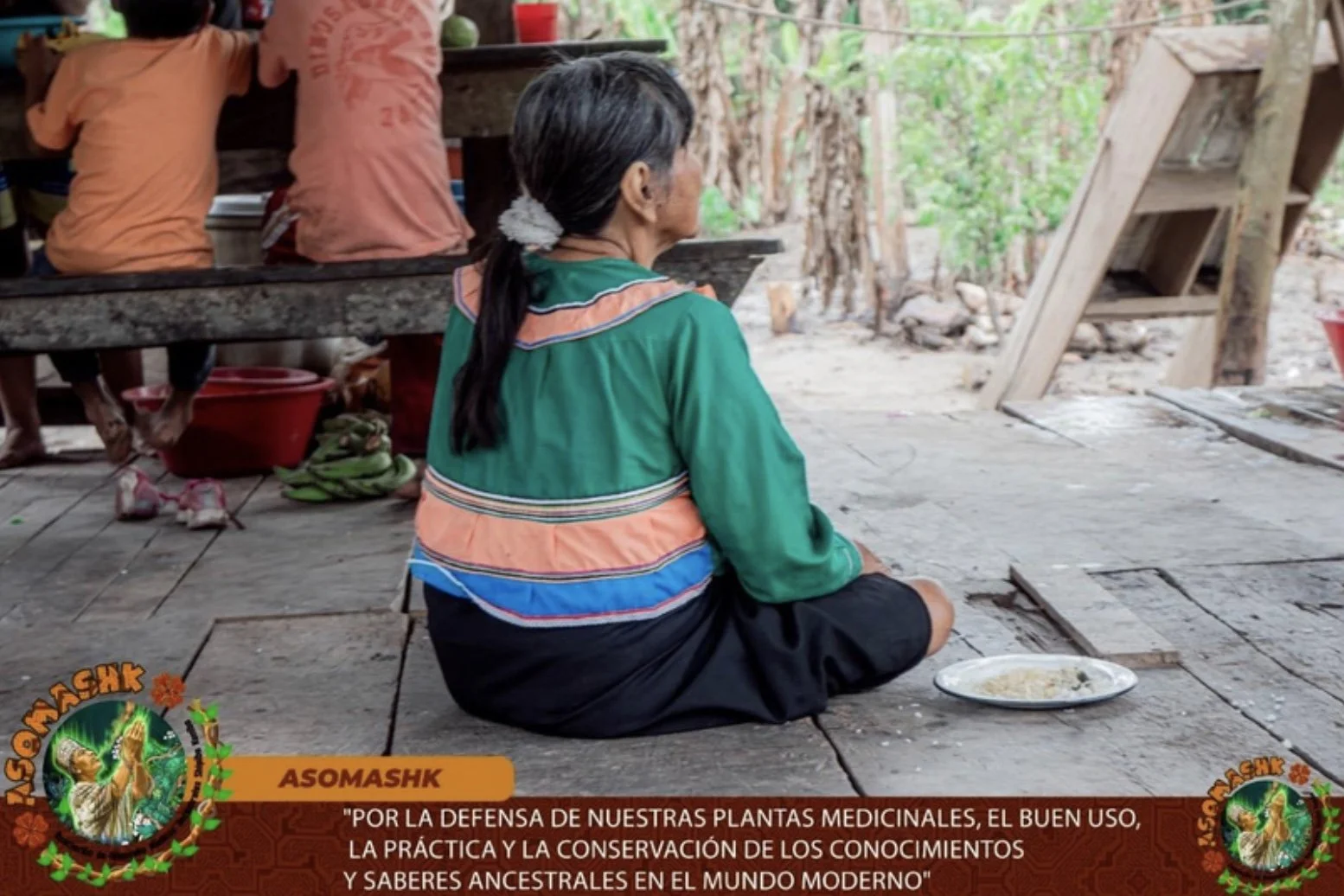Crisis and Response: Collective Support for Shipibo-Konibo Communities After the 2025 Ucayali River Floods
Earlier this year, in March 2025, devastating floods swept through the Ucayali region of the Peruvian Amazon, where many Shipibo-Konibo communities reside. This was the most severe flooding in the region in over a decade, with rivers and lakes rising well above emergency levels. Entire villages were submerged. Families lost homes, crops, animals, and their basic means of survival.
To meet this crisis, Jakon Kibi and our parters at ASOMASHK (Asociación de Onanyabo Médicos Ancestrales Shipibo-Konibo) launched an emergency fundraiser to provide direct aid to the most affected families communities. Thanks to the generosity of donors across the world, we raised a total of $18,688. Every contribution, small and large, played a critical role in supporting our response to these catastrophic floods.
Earlier this year, in March 2025, devastating floods swept through the Ucayali region of the Peruvian Amazon, where many Shipibo-Konibo communities reside. This was the most severe flooding in the region in over 15 years, with rivers and lakes rising well above emergency levels. Entire villages were submerged. Many families lost homes, crops, animals and their basic means of survival.
To meet this crisis, Jakon Kibi and our partners at ASOMASHK (Asociación de Onanyabo Médicos Ancestrales Shipibo-Konibo) launched an emergency fundraiser to provide direct aid to the most affected communities. Thanks to the generosity of donors from around the world, we raised a total of $18,688. Every contribution, small and large, played a critical role in supporting our response to these catastrophic floods.
How Funds Were Used
Funds were directed toward immediate relief and longer-term recovery for Shipibo-Konibo families in the hardest-hit areas along the Ucayali River, and reached between 720-800 Shipibo families in over 32 communities across 5 districts in the Ucayali and Loreto regions. These humanitarian relief efforts included:
Emergency Food Supplies: Provided 18 tons of emergency essential food supplies, including staples such as rice, flour, fariña (cassava), salt, cooking oil, noodles and other items to hundreds of families affected by flooding.
Additional Material Support: Distribution of used clothing, backpacks, shoes, matchsticks, gasoline and other essentials lost in the floodwaters.
Health and Medical Assistance: Provision of basic medical supplies and support for community health workers addressing the spread of flood-related illnesses. Over 50 patients received medications and injections as part of ancestral and modern medicine activities.
Specialized Agricultural Training and Support: Dissemination of vital crop seeds, including corn, plantain, watermelon and cucumber, as well as administration of technical trainings by engineer Nilo Gordon Morey on agricultural management to several affected communities. Trainings covered planting techniques, phytosanitary care, pest control and other techniques to empower communities with the knowledge to best utilize the seeds that were distributed and achieve higher crop yields.
Culturally Aligned Education: Trainings were delivered effectively in the Shipibo-Konibo language by a professional from the same ethnic group, promoting autonomous development and prompting requests for further educational and technical support from the communities.
Looking Forward
This effort was a response to an urgent and painful moment, but it also reflected something much larger: a collective commitment to solidarity, reciprocity and care across cultures.
Many of the people who contributed to this fundraiser have received something from the Shipibo-Konibo tradition, whether through ceremony, plant medicine, learning or friendship. This response was a meaningful step in returning that care in a tangible and respectful way.
While the immediate crisis has passed, long-term recovery continues. As climate events become more extreme and frequent, communities like those in Ucayali are increasingly vulnerable. Jakon Kibi and ASOMASHK remain committed to supporting sustainable solutions rooted in Shipibo leadership and Indigenous sovereignty, cultural preservation, and human dignity.
Irake. Thank You.
To everyone who contributed, shared the campaign or supported in other ways—thank you. Your generosity made a real impact, and we are deeply grateful.
If you'd like to stay involved or learn more about future efforts to support Shipibo-Konibo communities and healing traditions, join our email list for upcoming projects.













